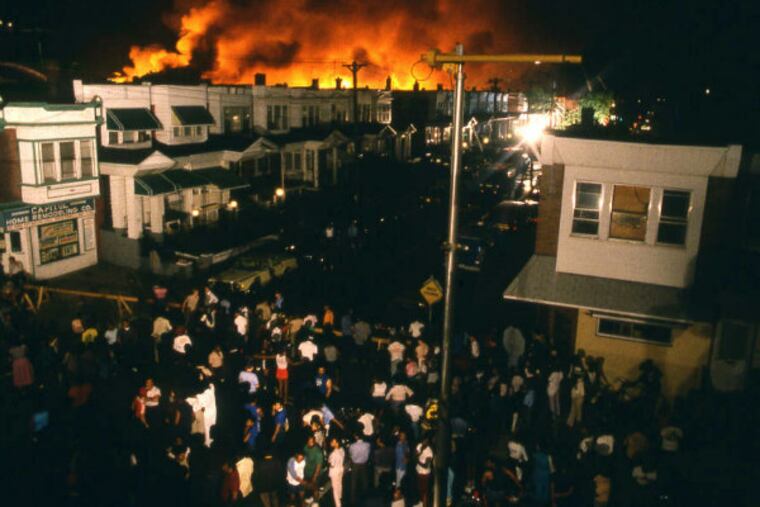Eyewitness to horror of MOVE confrontation
By Tom Torok 'Tom! Tom!" cried the woman waving to me from behind the police barricade. As I approached, she reached over, gave me a hug, and told police I was a guest at Mother's Day dinner at her home.

By Tom Torok
'Tom! Tom!" cried the woman waving to me from behind the police barricade. As I approached, she reached over, gave me a hug, and told police I was a guest at Mother's Day dinner at her home.
I had never seen this woman before. She was one of a number of delightful and friendly people I would meet on May 12, 30 years ago, in the West Philadelphia neighborhood around the 6200 block of Osage Avenue. For many, this day would mark the beginning of the worst days of their lives.
As we walked arm in arm toward her home a few blocks away, the woman and I laughed about what she called "our little plot." I had called her earlier, identified myself as an Inquirer reporter, and asked: "Are you up for an adventure?"
I explained that police were erecting barricades to prepare for some expected action against the radical group MOVE, which had been haranguing the neighborhood for months with obscenity-filled diatribes over a loudspeaker attached to the outside of 6221 Osage. A confrontation with MOVE at their Powelton Village house in 1978 had resulted in the death of Police Officer James J. Ramp in a fusillade of gunfire.
I asked this woman if she would let me pass through her home so I could access the alley behind the house across from 6221 Osage, the MOVE house. She quickly approved.
The tender loving care she lavished on her home was obvious. The same was true of several neighborhood homes I would enter that day. They all would be destroyed by fire in hours.
From the woman's home, I slipped quietly into the alley. The quiet lasted only seconds. It seemed everyone had loud, barking dogs. Some would die soon.
I tapped on the door of the house across from MOVE. A curtain parted, revealing rival Kitty Caparella, a Daily News reporter. I asked to be let in and she shook her head "no." I said the dogs would eat me alive and she mouthed the words "tough s-." Competition can be brutal.
I tried another house. The now late Inquirer reporter Robert "Bo" Terry answered. He passed the barricades by telling police he was delivering a bag of groceries he had been carrying.
I tried another house. So did two other reporters. The owner of the home directly behind MOVE gladly gave us permission to observe the goings-on from an upstairs bedroom. From there, we heard the cries of MOVE's children, five of whom would be dead soon. We saw a child roam the backyard and watched, through the slits of MOVE's boarded-up windows, an adult taking a sponge bath.
We had the perfect perspective until police, who wanted to use the bedroom as a command center, chased us out.
The next morning, the shooting started, and hundreds if not thousands of rounds were fired. Then the city did something no other American city had ever done. It dropped a bomb on itself, on the MOVE house.
A fire ensued and spread from house to house. Cautious of gunfire, police and firefighters simply watched.
Eleven people in the MOVE house died. Sixty-one homes were lost, and a wonderful, tight-knit neighborhood was destroyed.